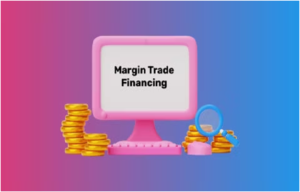Securing Your Company’s Future: Critical Mistakes To Avoid When Selecting 409a Valuation Services
5 min read
Selecting the appropriate 409A valuation source is a crucial choice for your private business. This crucial financial procedure has a direct effect on your investor connections, employee pay plan, and tax compliance. Regretfully, a lot of company executives choose valuation services incorrectly, which might have expensive repercussions. You may make a more educated choice that safeguards the interests of your business by being aware of these potential problems beforehand. When choosing a company valuation 409a Services, keep in mind these eight important points.
.Prioritizing Cost Over Credibility
It makes sense that many business executives want to keep costs as low as possible, particularly in the early phases of expansion. However, choosing a 409A valuation provider only on the basis of pricing frequently ends up being expensive in the long run. Budget-conscious providers could skimp on the complexity of their analyses, employ improper methodology, or lack the know-how to defend their work when the IRS looks into it. Significant penalties, such as extra taxes and possible legal costs that much outweigh any initial savings, may result from a valuation that cannot pass regulatory review. Take into account the provider’s experience, reputation, and capacity for job defense rather than just price. Although high-quality services usually come with a fair price tag, the safeguard they offer against potential issues makes them incredibly valuable.
.Overlooking Industry-Specific Experience
Accurate evaluations are greatly impacted by the distinct valuation issues that each business provides. A valuation source who lacks specialized knowledge of your industry may overlook important elements that affect the actual value of your business. Software companies, for example, are valued differently than industrial corporations or healthcare institutions. The valuer may find suitable similar organizations, comprehend typical growth trajectories, and detect industry-specific hazards with the use of industry-specific expertise. Examine a provider’s track record with companies like yours in detail before hiring them. Ask clients in your industry for references and case studies. In addition to lowering the risk of compliance problems, providers with proven experience in your sector tend to provide more tenable valuations and more accurate data for stakeholder interactions and strategic planning.
.Neglecting to Verify Independence
The independence of your 409A valuation source is crucial to the IRS and other financial regulatory agencies. A non-independent valuer, such as your company’s current accounting firm, a major investor, or any other person with a financial stake in your company, nullifies the “safe harbor” protection that properly performed appraisals offer. Your business might face severe compliance risks and possible tax fines as a result of this error. Independence guarantees evaluation impartiality, free from conflicts that might distort findings. Make sure to specifically ask about the independence rules and any conflicts of potential providers while assessing them. Professional valuers should have a clear boundary between valuation services and any advising duties that might lead to conflicts, and they should be quick to report any affiliations that could undermine their neutrality.
.Failing to Assess Qualification Credentials
Business valuation calls for specific knowledge, which is usually proven by professional certifications and continuing education. Many businesses make the mistake of hiring suppliers without checking their credentials, which might result in them hiring somebody without the necessary education or experience. Credible valuation experts frequently possess prestigious titles like Certified Valuation Analyst (CVA), Accredited Senior Appraiser (ASA), or Chartered Financial Analyst (CFA), among others. These certifications show that the supplier follows professional standards and has shown expertise in valuation procedures. Verify the qualifications of the individuals conducting your valuation—not simply the business as a whole—before choosing a service. Ask them about their continuing education procedures as well to make sure they are up to date with changing standards and techniques.
.Accepting Generic Valuation Approaches
Every private firm has a different set of risk variables, market positioning, development stage, and business model traits. Even yet, some valuation services use conventional templates or excessively straightforward approaches that don’t account for the unique conditions of your business. This one-size-fits-all strategy frequently leads to valuations that either overestimate or underestimate the value of your business, which can cause issues with tax compliance, investor relations, and staff retention. Reputable suppliers adjust their strategy to your unique circumstances, taking into account elements such as revenue predictability, client concentration, the competitive environment, and proprietary technologies. Examine whether prospective providers inquire in-depth about your business plan and expansion plans during the first sessions. People that show a sincere interest in learning about your special qualities usually provide more accurate and convincing appraisals.
.Disregarding Communication Quality and Responsiveness
Your business and the 409a valuation for startups provider must work together and communicate a lot of information during the appraisal process. When choosing a valuation service, some companies just consider technical skills, ignoring the significance of communication quality. But throughout the selection process, providers that are sluggish to reply or have poor communication skills usually keep up these behaviors throughout the engagement. Inadequate communication frequently results in assessments that don’t address your particular problems, delays in the completion of the appraisal, or misconceptions about your business model. Consider how quickly and clearly each supplier answers your questions before making your decision. Check to see whether they are willing to provide in-depth answers to inquiries and if they can clearly explain complicated ideas.
.Ignoring Audit Defense Capabilities
When choosing a 409A valuation service, many businesses just consider the first report and fail to consider the possible need for audit defense. However, when you are subject to IRS examination or due diligence from possible investors or acquirers, the full worth of your valuation becomes clear. When their findings are contested during audits or due diligence procedures, some suppliers give reports but little assistance. This lack of assistance might make your business vulnerable at the very moment when professional support is most needed. Examine prospective suppliers’ audit defense procedures and performance history in detail. Ask about specific instances in which they were able to effectively defend values during due diligence or regulatory inspections.
.Settling for Limited Methodology Transparency
Some valuation services function as “black boxes,” offering judgments without providing a clear explanation of their process, underlying presumptions, or sources of data. Because it is impossible to assess the quality or defensibility of the value, this lack of openness poses serious concerns. You cannot reliably explain the value to board members, possible investors, or regulatory authorities if you do not comprehend how the provider arrived at their findings. Expert valuation services have to offer thorough papers that precisely explain their methodology, underlying presumptions, choices of similar companies, and particular modifications made to account for the particular conditions of your business.
Conclusion
Choosing a 409A small business valuation provider is a crucial choice that will have a significant impact on the financial stability and legal compliance of your business. You may obtain not just a figure but also a solid basis for equity selections by steering clear of these typical blunders. Put qualifications, expertise in the field, autonomy, and effective communication above price alone. Keep in mind that the ideal valuation partner offers more than just compliance; they also offer strategic insights that promote the expansion of your business while shielding you from needless risks.





